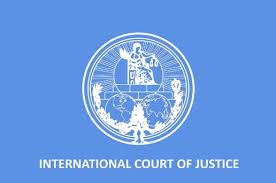Kulbhushan Jadhav Case
📘 Kulbhushan Jadhav Case (India v. Pakistan)
🔹 Background:
Kulbhushan Sudhir Jadhav, an Indian national and former Indian Navy officer, was arrested by Pakistan in March 2016.
Pakistan claimed that Jadhav was a spy involved in espionage and sabotage activities, working for India's intelligence agency (RAW – Research and Analysis Wing).
Pakistan sentenced him to death in April 2017 through a military court, without granting consular access to India.
India denied the allegations and approached the International Court of Justice (ICJ), asserting that Pakistan had violated international law, particularly the Vienna Convention on Consular Relations (1963).
🔹 India’s Claims:
India took the matter to the ICJ on May 8, 2017, alleging that:
Violation of Article 36 of the Vienna Convention on Consular Relations (VCCR):
Pakistan failed to inform India promptly of Jadhav’s arrest.
Pakistan denied consular access to Jadhav despite India’s repeated requests.
Denial of fair trial and legal representation:
Jadhav was tried in a military court with no transparency.
He was allegedly forced to confess under duress.
Human rights violations:
The death penalty without proper legal process and consular access violated fundamental human rights.
🔹 Pakistan’s Defence:
Pakistan argued that:
Jadhav was a spy and hence not entitled to consular access under the exception clause of the VCCR.
National security considerations allowed Pakistan to try him under military law.
India was using the ICJ politically, ignoring the bilateral agreement (2008) between India and Pakistan which allowed for consular access to be considered on merit.
🔹 Interim Measures by ICJ (May 18, 2017):
The ICJ, in a unanimous decision, ordered Pakistan to stay the execution of Jadhav until the final judgment was given.
🔹 Final Judgment by ICJ (July 17, 2019):
The ICJ ruled in India’s favor, by 15 votes to 1, holding that:
✅ Pakistan violated Article 36 of the Vienna Convention:
Failed to inform Jadhav of his rights.
Denied consular access to India.
✅ Jadhav’s conviction and sentence were not reviewed with due process.
✅ Pakistan must:
Effectively review and reconsider the conviction and sentence.
Provide consular access to Jadhav immediately.
Take steps to ensure a fair trial in accordance with international law.
However, the ICJ did not annul the military court’s judgment or order Jadhav's release — but stressed a proper review of the conviction in light of the VCCR violation.
🔹 Aftermath and Current Status:
Pakistan allowed consular access, but under restricted and monitored conditions.
India has consistently sought unrestricted access and a fair civilian trial.
As of now, Jadhav remains in Pakistani custody, and the case continues to be a point of diplomatic tension between the two countries.
🔹 Importance of the Case:
🔹 1. Reaffirmed Vienna Convention Rights:
Even in espionage cases, consular access must not be denied.
VCCR does not exclude spies from protection.
🔹 2. Strengthened Individual Rights under International Law:
Demonstrated that individuals can be protected through state action at the international level.
🔹 3. Precedent for Consular Access Cases:
Reinforced earlier ICJ rulings (e.g., LaGrand and Avena cases) regarding consular rights.
🔹 Summary Table:
| Element | Details |
|---|---|
| Parties | India v. Pakistan |
| Individual Involved | Kulbhushan Jadhav (Indian national) |
| Arrested | March 2016, Balochistan (claimed by Pakistan) |
| Pakistan's Action | Death sentence by military court (April 2017) |
| India's Claim | Violation of Vienna Convention on Consular Relations |
| ICJ Interim Order | Stay on execution (May 2017) |
| ICJ Final Judgment | Pakistan violated VCCR; must review sentence and allow access |
| Outcome | Pakistan gave limited consular access; no civilian retrial yet |
🔚 Conclusion:
The Kulbhushan Jadhav case is a landmark in international diplomatic law and consular relations, showcasing how international courts can mediate disputes between nations and uphold the rule of law even in politically sensitive matters. While the ICJ’s ruling was legally binding, enforcement remains dependent on state cooperation and goodwill.












comments